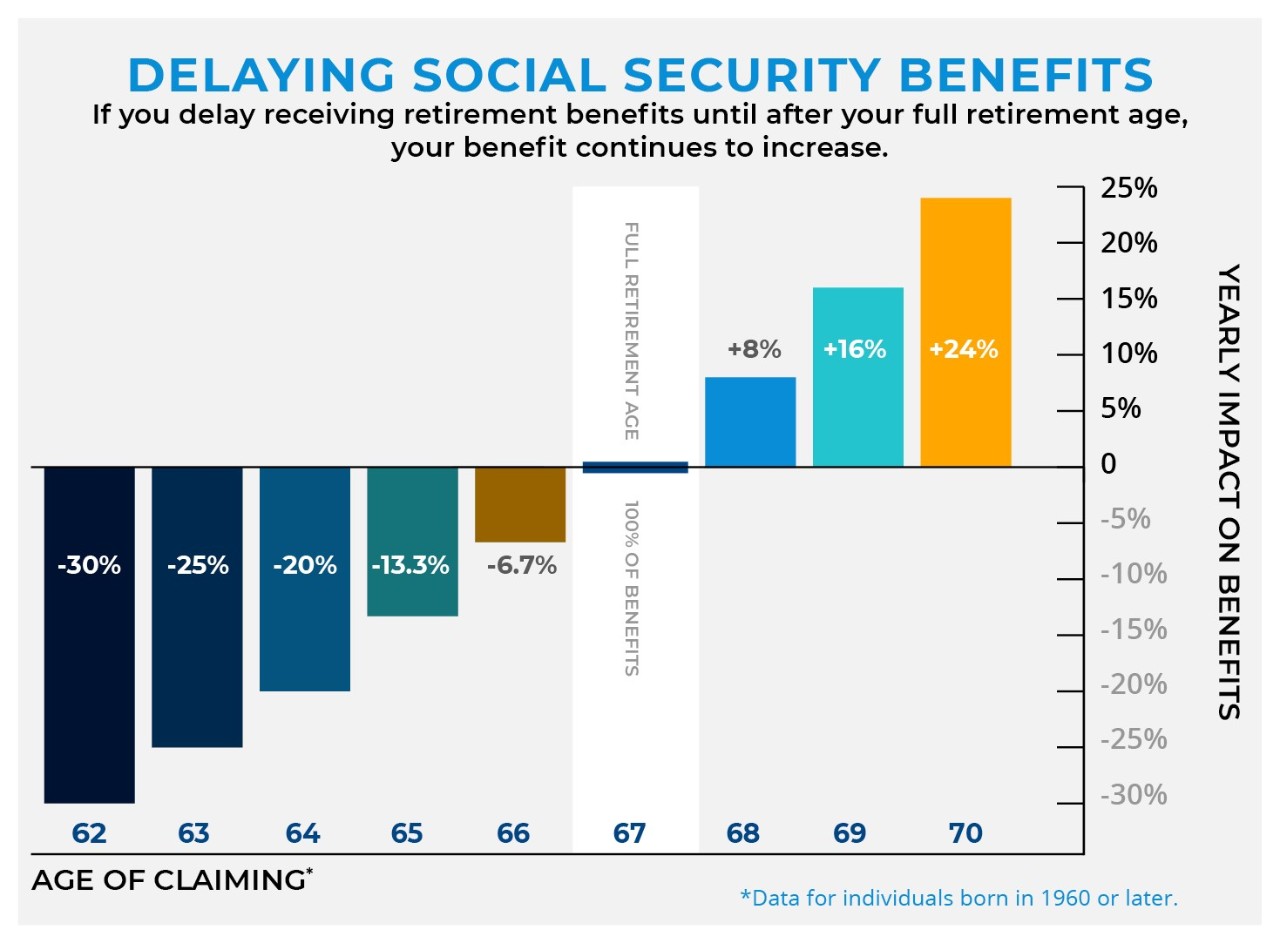Discover financial solutions that protect your future and provide peace of mind. Whether you're exploring annuities, life insurance, or understanding employee benefits through your workplace, Pacific Life offers resources and products designed to meet your personal and family goals.
Support your workforce with innovative employee benefits and retirement solutions. Pacific Life partners with business owners, benefits administrators, and pension fund managers to create customized programs that attract and retain top talent while securing their financial future.
Simplify complex retirement and pension risk management with our tailored solutions for large organizations. Pacific Life specializes in working with institutions to address their unique challenges, offering expertise in pension de-risking and strategic retirement planning for a more secure future.
Empower your clients with confidence by leveraging Pacific Life’s comprehensive portfolio of financial products. From annuities to life insurance, we provide the tools, resources, and support to help financial advisors and brokers deliver exceptional value and long-term results.
-
Individuals
Discover financial solutions that protect your future and provide peace of mind. Whether you're exploring annuities, life insurance, or understanding employee benefits through your workplace, Pacific Life offers resources and products designed to meet your personal and family goals.
-
Employers
Support your workforce with innovative employee benefits and retirement solutions. Pacific Life partners with business owners, benefits administrators, and pension fund managers to create customized programs that attract and retain top talent while securing their financial future.
-
Institutions
Simplify complex retirement and pension risk management with our tailored solutions for large organizations. Pacific Life specializes in working with institutions to address their unique challenges, offering expertise in pension de-risking and strategic retirement planning for a more secure future.
-
Financial Professionals & Brokers
Empower your clients with confidence by leveraging Pacific Life’s comprehensive portfolio of financial products. From annuities to life insurance, we provide the tools, resources, and support to help financial advisors and brokers deliver exceptional value and long-term results.
Claiming benefits when you are younger than your full retirement age can mean missing out on hundreds of dollars per month.

Many Americans rely on Social Security benefits as a significant source of income in retirement. However, not everyone understands the rules surrounding these benefits. As a result, they may claim their benefits at a time that’s less than ideal for their circumstances, ultimately shortchanging themselves in the process.
There’s no magic age for when you should begin claiming benefits—each person’s situation and needs are unique—but there are several factors to consider when optimizing Social Security benefits as part of your comprehensive retirement plan.
Full retirement age
To begin strategizing about when to claim benefits, you’ll first need to determine your full retirement age (FRA) as indicated by the Social Security Administration. If you were born in 1960 or later, your FRA is 67. If you were born before 1960, your FRA falls between 65 and 66, depending on the specific year you were born. Although you’re allowed to start claiming Social Security benefits as early as age 62, you won’t receive full monthly benefits unless you wait until your FRA to claim them.
Claiming early can mean missing out on hundreds of dollars per month, which adds up if you decide to begin the process several years early.
Furthermore, if you delay Social Security benefits past your FRA, your benefits will increase by 8 percent each year until age 70. For example, if your FRA is 67 and you wait until 70 to claim Social Security benefits, your monthly benefit increases by 24 percent. Some retirees are tempted to claim their benefits early and reinvest them; however, the investments may not produce returns large enough to beat the guaranteed 8 percent annual growth in delaying Social Security benefits.
Claiming early
Because of these rules, it may seem like a no-brainer to delay retirement benefits, but doing so is not a realistic option for everyone. Your health and longevity are major factors in determining how much money you’ll need in retirement. If you are treating a chronic condition and have a shorter life expectancy than average, it may be wise to choose the support of early Social Security benefit payments. Likewise, if you simply need the income, Social Security benefits can be a saving grace.
On the other hand, if you’re in good health and expect to live well into your 80s, it may be wise to increase your benefit by delaying your claim as long as possible (up to age 70) to receive the maximum benefit payment amount. If you want to delay your Social Security benefits but do not have sufficient sources of income, you may consider tapping into retirement accounts, such as 401(k) plans and IRAs, to help bridge the income gap before reaching your FRA.
Coordinating with your spouse
If you’re married, your Social Security benefits strategy should also take your spouse’s benefits into consideration. For instance, you may decide that the lower-earning spouse should claim benefits at full retirement age for cash flow reasons, while the higher-earning spouse’s benefits grow until age 70.
Ultimately, to optimize Social Security benefits you need to find the sweet spot—the point at which the higher monthly benefits you’d receive by waiting to claim exceed the amount of money you’ll miss by not claiming early. For many people, that means delaying claiming Social Security as long as possible. Consult your financial professional for assistance in determining what retirement income options can support your unique circumstances.

READ MORE

Retirement Planning
Talking Social Security With Mary Beth Franklin
Staying aware of current regulations set by the Social Security Administration can help retirees receive the full benefits they deserve.

Retirement Planning
Optimizing Social Security Benefits with Mary Beth Franklin
Women and other minorities can optimize their strategies for claiming Social Security retirement benefits by keeping a few key ideas in mind.

Retirement Planning
The Financial Pillars of Retirement with Mary Beth Franklin
Many people underestimate the importance of financial security in building an emotionally fulfilling retirement.

Retirement Planning / Family
How Annuities Can Boost Your Retirement Savings
The tax-deferred growth potential of an annuity can boost your savings for the future.

Retirement Planning / Family
How to Enhance Your Retirement Strategy with Cash Value Life Insurance
Your retirement strategy should begin with a tax-advantaged retirement account, but it doesn't have to end there. Supplementing your 401(k) or IRA with cash value life insurance can help give you greater financial flexibility during your lifetime while providing protection to your loved ones.

Family / Estate Planning
What Blended Families Should Know About Estate Planning
An estate plan with an Irrevocable Life Insurance Trust may help reduce estate taxes and ensure equitable distribution of a blended family’s assets.

Family / Estate Planning
Ensuring a Smooth Transition for Your Family Business
A plan that includes life insurance can help provide liquidity and equality in a family business succession.

Home / Estate Planning
How to Help Protect Your Estate Plan from an Uncertain Future
A life insurance trust can help provide flexibility and protection for the future.

Family / Estate Planning
Estate Planning for Unmarried Couples
Life insurance can help maximize wealth transfer for unmarried couples.

Family / Estate Planning
5 Ways Life Insurance Can Help With Estate Planning
As you develop or update an estate plan, considering the following ways life insurance can help address your needs.

Career And Business
Retirement Savings Options at a New Job
Weigh your choices before deciding where—or whether—to move your retirement savings when you switch employers.

Retirement Planning
Ways to Retire Confidently
If you’re concerned about saving enough for retirement, a protected source of income can help put your mind at ease.

Retirement Planning / Home
Don’t Put Off Saving for Retirement
Start building your nest egg early to prepare for the unexpected.

Retirement Planning / Family
Managing Your Beneficiaries’ Inheritance
An annuity with a predetermined beneficiary payout option can offer greater control without a trust.

Retirement Planning
How to Save on Charitable Giving During Retirement
Qualified charitable distributions can help with tax savings and at the same time give to charity during retirement.

Retirement Planning
Picking the Right Type of IRA for You
Understanding the difference between a traditional and Roth IRA can go a long way in planning your retirement savings strategy.

Estate Planning / Family
How to Cope Without the Family Breadwinner
Take these steps to help your loved ones prepare financially in the event the worst happens to you.

Career And Business / Family
A Smart Way for Philanthropists to Give More
A well-designed charitable remainder trust can help lower taxes and aid in financial planning.

Retirement Planning
The Challenges of Living Longer
The good news: Retirees are living longer. The bad news: That may mean retirees will have to fund more years of retirement.

Retirement Planning
Make the Most of Your Retirement With an Informed Income Strategy
Annuities offer another way to put a floor under your retirement income, providing an retirement income stream in exchange for an initial investment. Immediate annuities begin issuing payments soon after you make your investment, while deferred annuities are invested for a period of time before you start taking withdrawals. You can also choose between fixed (-rate) and variable annuities. Fixed annuities earn a guaranteed interest rate over time, while variable annuities are tied to the performance of an investment portfolio. Both provide monthly income for life and protection for your loved ones through a death benefit.

Estate Planning / Family
Finding a Way to Hand Over a Family Business
Creating a detailed succession plan is paramount for a smooth and profitable transition.

Family / Retirement Planning
Balancing the Care of Aging Parents and Children
There are ways to ease the burden of this high-stress juggling act.

Retirement Planning
Deciding When to Claim Retirement Benefits
Keys to Optimizing Social Security Income.

Home
How Tax Reform Impacts Retirement and Estate Planning
The new tax law will alter many decisions you may have to make when filing your 2018 taxes.

Retirement Planning
The Importance of Investment Diversification
Methodically placing assets in several baskets isn’t as thrilling, but helps you invest responsibly.

Estate Planning / Family
Protect Your Loved Ones With an Estate Plan
Taking a proactive approach to passing on your assets can help bring peace of mind to you and your family.

Retirement Planning / Home
Choosing a Financial Professional
When searching for the right financial professional for you, start with these 7 questions.

Retirement Planning / Family
Four Ways to Access the Value of a Life Insurance Policy
Life insurance isn’t only for your survivors: Find out how to use its cash value during your lifetime.

Retirement Planning
Women & Finances: Securing Your Retirement
Strategies to help make sure your retirement savings last for life.

Retirement Planning / Family
Women & Finances: Strengthening Your Finances After Divorce
Make sure your retirement plan is still on track.

Family / Home
Women & Finances: Moving Beyond the Loss
The loss of a significant other can offer an opportunity to learn about financial empowerment.

Retirement Planning
Weathering a Turbulent Market
Worried investors would do well to remember that historically, markets recover after a downturn.

Family / Home
The Surprising Affordability of Term Life Insurance
A life insurance policy isn’t as expensive as you think.

Family / Home
Get the Most Out of Your Annual Financial Check-Up
A yearly financial review is a good way to stay fiscally healthy.

Retirement Planning / Family
How to Buy an Annuity
Choose the right annuity plan that aligns with your financial goals.

Family / Home
6 Life Insurance Myths Debunked
Don’t let these common misconceptions prevent you from giving your family the protection they deserve.

Healthcare / Family
Planning for the Cost of Healthcare in Retirement
Trying to anticipate what you’ll spend on healthcare in retirement can seem daunting, but estimates can help you start preparing for the future.

Family / Home
The Benefits of Rethinking Work-Life Balance Before Retirement
Achieving better work-life balance now can help position you for a more fulfilling future.

Family / Estate Planning
How to Buy Life Insurance
These four steps can help you choose the best protection for you and your family.

Retirement Planning / Family
How to Lower Your Taxes in Retirement
You’ve worked hard to build your retirement savings. Now, make sure your money lasts by considering strategies to lower taxes.

Home / Family
The Importance of Financial Literacy
Learn about basic concepts regarding financial literacy: budgeting, saving, debt/spending, and financial management.

Retirement Planning / Family
Make the Most of Your Money with a Financial Plan
A financial plan can help you meet your needs today and reach your long-term goals.

Family / Home
Money Moves to Help You Feel More Confident
Build a stronger financial foundation with these four steps.

Family / Home
Supporting Multiple Generations
Tips for families with many generations living together so everyone stays financially healthy.

Family / Estate Planning
Securing Your Family’s Future
Having an estate plan is essential to maintaining your family’s financial security.

Retirement Planning / Family
4 Ways to Help Turn Income Into Wealth
Build your wealth by incorporating these strategies into your financial plan.

Career And Business
Why Employee Benefits Matter
The key to attracting top talent goes beyond trendy perks.

Retirement Planning / Family
How Much Life Insurance Do I Need?
These key factors can help you figure out your life insurance sweet spot.

Retirement Planning / Family
Less Stress More Security
How to reduce anxiety and bolster your retirement with reliable protected income.

Retirement Planning / Family
How to Generate Retirement Income
Three important questions to ask before you reach retirement age.

Retirement Planning / Family
Saving Now for the Retirement Income you Need Later
Following these steps can help you save enough money to make your retirement dreams come true.

Home / Estate Planning
Using Life Insurance and Annuities in Estate Planning
Adding these two financial products could help you achieve your estate planning goals more efficiently.

Family / Estate Planning
Using Life Insurance for Generational Wealth Transfer
Five reasons to consider permanent life insurance for transferring wealth to children or grandchildren.

Family / Home
What to know about Cash-Value Life Insurance
If you’re in the market for life insurance protection, don’t overlook permanent life policies.

Career And Business / Family
How Key Person Life Insurance Can Benefit Your Business
Life insurance for an employee your business can’t live without
The above is provided for informational purposes only and should not be construed as investment, tax, or legal advice. Information is based on current laws, which are subject to change at any time. You should consult with your accounting or tax professional for guidance regarding your specific financial situation.
Pacific Life refers to Pacific Life Insurance Company and its affiliates, including Pacific Life & Annuity Company. Insurance products are issued by Pacific Life Insurance Company in all states except New York and in New York by Pacific Life & Annuity Company. Product availability and features may vary by state. Each insurance company is solely responsible for the financial obligations accruing under the products it issues.
Pacific Life’s Home Office is located in Newport Beach, CA.
PL11A


